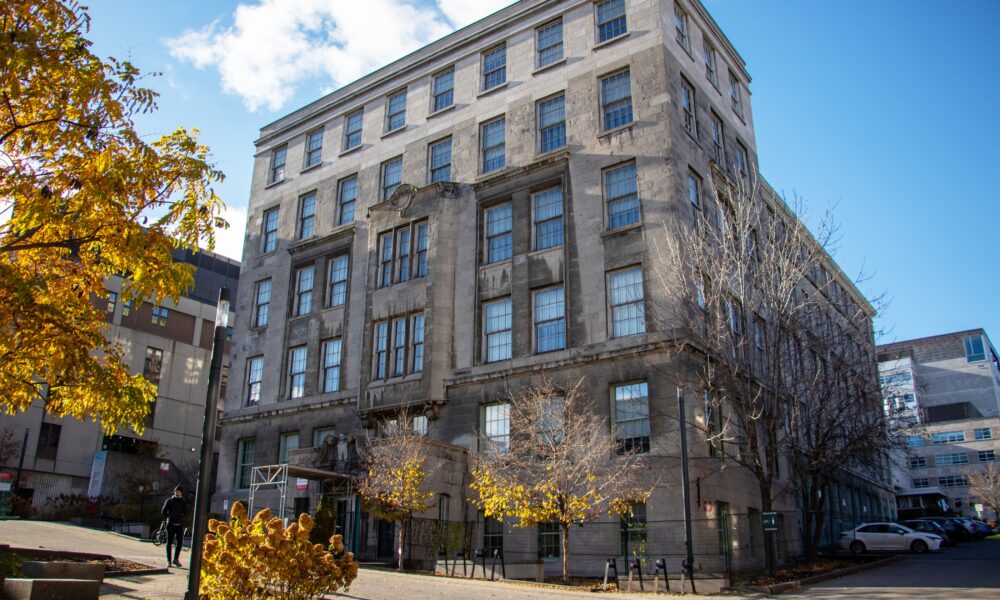McGill’s annual joint Senate and Board of Governors (BoG) meeting took place in the Faculty Club on Nov. 14, addressing the theme of “Building on McGill’s Record of Excellence for the Third Century: Challenges and Opportunities Ahead.”
Maryse Bertrand, Chair of the BoG, briefly introduced the topic before handing the microphone off to Principal and Vice-Chancellor Deep Saini for opening remarks at his first joint Senate-BoG meeting. Saini began by acknowledging the importance of plurality and dialogue between the two bodies. Touching on the fact that the public’s perception of the role of universities is changing, he emphasized the institution’s role in equipping students with skills that will help establish McGill as a trusted voice to the public.
“Higher education is entering a new reality [….] We must consider the factors that have contributed to McGill’s reputation as a top university while finding ways to build upon this reputation,” Saini said.
Bertrand then led a warm-up session that involved the entire room. Amidst this activity, she highlighted the recent decision of the Quebec government to raise tuition fees for out-of-province and international students. Despite these challenges and obstacles, Bertrand confidently asserted her belief in McGill’s resilience and unwavering reputation.
Following the warm-up, senators and members of the Board were invited to discuss the question, “Considering the opportunity and challenges facing universities, how do we best prepare for the future of higher education at McGill?” in their individual round table groups. PGSS Secretary-General Satish Kumar Tumulu gave the first answer, emphasizing McGill’s place as a centre for sourcing knowledge in service of various communities. Other members of the BoG and Senate highlighted this point as well as the fact that McGill’s research sector has been its biggest strength but that this research must reach the broader community.
The night then proceeded to take a round-table format, where each table was assigned a question by Bertrand and given 45 minutes to discuss before an appointed speaker would present the results of each team to the room.
Some groups discussed the question of the changing perceptions of a university degree’s value and accessibility. Table one emphasized how over the past 60 years, economic factors and shifting industry demands have prompted a reevaluation of educational priorities. Tables one, two, and three all focused on how the university aims to bridge the gap between academia and industry demands by fostering inclusivity and transparency, ensuring students are prepared for a rapidly changing job market.
Jacob Levy, a Member-at-Large on the Senate and Chair of McGill’s Department of Political Science, spoke on how McGill has not yet faced ideological repression by the provincial government despite their unsteady relationship, putting the institution in a privileged position to create changes.
“If we intend for a guild to be a force in facing challenges in fixing [student’s] education […] then I think that we want to take advantage of our relatively protected position so far, to be forceful as advocates for the independent and critical voices within academia,” Levy said. “We are among the research universities that have so far not been under that kind of content-based [ideological] attack. That makes us relatively more attractive to both faculty and students.”
Shifting focus to the role of universities in combating misinformation and public distrust, tables four to six spoke on the importance of maintaining information plurality while actively combating disinformation. The tables recognized the need for transparency, emphasizing faculty involvement in teaching students how to discern truth from misinformation. These efforts also extend to rebuilding trust, particularly among historically marginalized minorities such as neurodivergent people and people of colour, reaching rural communities, and ensuring institutional inclusivity.
Lastly, tables seven to ten discussed educating a future-ready generation with the knowledge, skills, and drive to navigate their careers and their lives. The tables collectively discussed moving toward an adaptive learning approach that shifts emphasis from grades to critical thinking and personal growth.
Moment of the meeting:
Principal Saini said in his closing remarks that the institution needed to invest in a fleet of BeaverTail trucks. He was referencing a comment made earlier by a member regarding the trucks’ ability to enter communities and spread information—a line discussed throughout the meeting.
Soundbite:
“Don’t lose the research part of the university. It has been its biggest strength, but it needs to reach the communities.” — Vice Principal (Research and Innovation) Martha Crago, who sits on the Senate, on the importance of research diversity at McGill.








